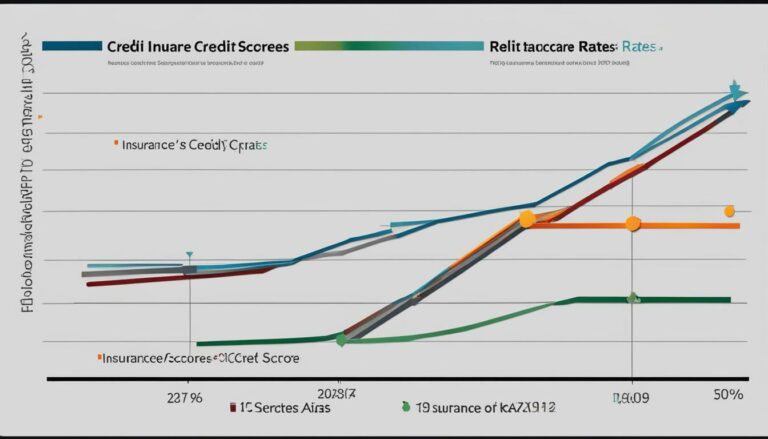Mastering Credit Scoring for Small Business Owners: Key Insights

Factual data: Small business owners heavily rely on credit cards for funding their businesses and covering day-to-day operating expenses, according to a survey by Hello Alice. The majority of small business owners use personal credit cards for business purposes, with nearly three-quarters using them at least monthly. However, accessing credit has not been easy for all small business owners, with 45% reporting personal credit card application denials in the past five years. Additionally, 80% of owners either do not have a business credit score or do not know their score. Only 20% currently have a business credit card, but 90% of owners without one believe it would have a positive impact on their business. Improving credit is a priority for many small business owners, with strategies including paying bills on time and disputing credit report errors. Access to credit varies across demographics, with Black small business owners facing higher denial rates for personal and business credit cards.
Your credit score matters as a small business owner. It plays a crucial role in determining your eligibility for funding and can impact the overall financial health and success of your business. Understanding credit scoring and taking proactive steps to improve it can make a significant difference in accessing credit and growing your business.
While credit cards are a popular funding option for small business owners, accessing credit has not been without challenges. Many owners have faced denials when applying for personal credit cards, making it difficult to obtain the necessary funding. Additionally, a large percentage of owners either do not have a business credit score or are unaware of their score, limiting their ability to demonstrate creditworthiness to lenders.
🚨 TUIC Errors + Low Credit Score?
CreditScoreIQ helps you build credit faster by reporting utility bills to all 3 bureaus—while you dispute errors.
Start Building Credit Today →Key Takeaways:
- Small business owners heavily rely on credit cards for funding.
- Accessing credit can be challenging, with denials reported by a significant percentage of owners.
- Many small business owners do not have a business credit score or are unaware of their score.
- Having a business credit card can positively impact a small business’s creditworthiness.
- Improving credit scores through strategies like paying bills on time is a priority for small business owners.
The Importance of Credit Scores for Small Business Owners
As a small business owner, understanding and improving your credit score is essential for the financial success of your business. A credit score is a numerical representation of your creditworthiness, indicating to lenders how likely you are to repay borrowed funds. It plays a crucial role in determining your eligibility for loans, credit lines, and other financial opportunities.
For small business owners, credit scores are especially important because they heavily rely on credit cards for funding their businesses and covering day-to-day operating expenses. According to a survey by Hello Alice, the majority of small business owners use personal credit cards for business purposes, with nearly three-quarters using them at least monthly.
However, accessing credit has not been easy for all small business owners. The survey found that 45% of them reported personal credit card application denials in the past five years. Additionally, a staggering 80% of owners either do not have a business credit score or do not know their score. Only 20% currently have a business credit card, but a whopping 90% of owners without one believe it would have a positive impact on their business.
To improve your credit score, consider implementing strategies such as paying bills on time and disputing credit report errors. By managing your credit responsibly and establishing a solid credit history, you can enhance your creditworthiness and improve access to funding for your small business.

Challenges Faced by Small Business Owners in Accessing Credit
Small business owners often encounter significant challenges when trying to access credit. This is particularly true for startups and entrepreneurs who may lack an established credit history. Improving credit scores is a priority for many business owners, as it directly impacts their ability to secure financing and access funding.
According to a survey conducted by Hello Alice, small business owners heavily rely on credit cards for funding their businesses and covering day-to-day operating expenses. In fact, the majority of small business owners use personal credit cards for business purposes, with nearly three-quarters using them at least monthly. However, accessing credit has not been easy for all small business owners, with 45% reporting personal credit card application denials in the past five years. These denials can have a significant impact on a business’s ability to grow and thrive.
Furthermore, the survey revealed that 80% of small business owners either do not have a business credit score or do not know their score. This lack of awareness can hinder their ability to evaluate their creditworthiness and take necessary steps to improve it. Only 20% of small business owners currently have a business credit card, but a staggering 90% of owners without one believe that it would have a positive impact on their business.

In order to address these challenges, it is crucial for small business owners to take proactive steps to improve their credit scores. This includes strategies such as paying bills on time, disputing credit report errors, and managing credit utilization effectively. By working towards improving their creditworthiness, small business owners can enhance their chances of accessing the credit they need to fuel their growth and success.
| Key Insights: | Impact on Small Business Owners: |
|---|---|
| Small business owners heavily rely on credit cards for funding their businesses and covering day-to-day operating expenses. | Accessing credit has not been easy for all small business owners, with 45% reporting personal credit card application denials in the past five years. |
| 80% of small business owners either do not have a business credit score or do not know their score. | Only 20% currently have a business credit card, but 90% of owners without one believe it would have a positive impact on their business. |
| Improving credit is a priority for many small business owners, with strategies including paying bills on time and disputing credit report errors. | Access to credit varies across demographics, with Black small business owners facing higher denial rates for personal and business credit cards. |
The Impact of Business Credit Cards on Small Businesses
Small business owners heavily rely on credit cards for funding their businesses and covering day-to-day operating expenses. According to a survey by Hello Alice, the majority of small business owners use personal credit cards for business purposes, with nearly three-quarters using them at least monthly.
However, accessing credit has not been easy for all small business owners. The survey found that 45% of small business owners reported personal credit card application denials in the past five years. This highlights the challenges faced by entrepreneurs in obtaining credit, which can hinder their business growth and stability.
Currently, only 20% of small business owners have a business credit card, and a staggering 90% of owners without one believe it would have a positive impact on their business. Business credit cards offer several benefits, including separating personal and business expenses, building a business credit history, and accessing higher credit limits. Establishing a business credit card can improve a business’s credit scoring and enhance eligibility for business loans, providing the necessary resources to expand and thrive.
It is important for small business owners to understand the credit scoring criteria for business loans and the potential impact of business credit cards on their creditworthiness. By actively managing their credit and taking steps to improve their credit scores, small business owners can increase their chances of accessing the financing they need to support their growth and success.

“Business credit cards offer several benefits, including separating personal and business expenses, building a business credit history, and accessing higher credit limits.”
| Type of Credit Card | Personal | Business |
|---|---|---|
| Approval Rate | 55% | 80% |
| Denial Rate | 45% | 20% |
| Credit Scoring Impact | Personal credit history | Business credit history |
- Separate personal and business expenses: Having a business credit card allows small business owners to keep their personal and business finances separate, making it easier to track and manage expenses.
- Build a business credit history: Business credit cards contribute to establishing a business credit history, which is important for future loan applications and demonstrating creditworthiness to lenders.
- Access higher credit limits: Business credit cards often come with higher credit limits compared to personal cards, providing small business owners with increased purchasing power and flexibility.
- Improve credit scoring criteria for business loans: Using a business credit card responsibly and making timely payments can improve a business’s credit score, making it more attractive to lenders when applying for business loans.
Strategies for Improving Credit Scores
6. As a small business owner, understanding and improving your credit score is crucial for long-term financial success. According to a survey by Hello Alice, small business owners heavily rely on credit cards for funding their businesses and day-to-day expenses. However, accessing credit can be challenging, with personal credit card denials reported by 45% of small business owners in the past five years. To improve your credit score and increase your chances of securing credit, consider implementing the following strategies:
- Pay bills on time: Consistently paying your bills by their due dates is one of the most effective ways to improve your credit score. Late payments can have a negative impact on your creditworthiness, so make it a priority to pay all your bills on time.
- Dispute credit report errors: Regularly review your credit reports from the major credit bureaus and dispute any inaccuracies or errors you find. Correcting these mistakes can help improve your credit score.
- Keep credit utilization low: Your credit utilization ratio, which is the amount of credit you’re using compared to your total available credit, plays a significant role in your credit score. Aim to keep your credit utilization below 30% to demonstrate responsible credit management.
- Build a positive credit history: Establishing a solid credit history is essential for improving your credit score. One way to do this is by opening a business credit card and using it responsibly. Make timely payments and keep the balance manageable to demonstrate your creditworthiness.
Remember, improving your credit score takes time and discipline. By implementing these strategies and consistently managing your credit, you can enhance your creditworthiness and increase your chances of accessing the credit you need to grow your small business.

7. While improving credit scores is a priority for many small business owners, it is important to be aware of the disparities in credit access faced by different demographics. According to the survey, Black small business owners experience higher denial rates for both personal and business credit cards. This highlights the systemic challenges that minority entrepreneurs face in accessing credit and highlights the need for equitable lending practices.
To address these disparities, it is crucial for financial institutions and policymakers to promote fair lending practices and provide equal opportunities for small business owners from all backgrounds. By leveling the playing field and ensuring access to credit for all, we can foster a more inclusive and thriving small business ecosystem.
8. In summary, improving credit scores is essential for small business owners looking to access funding and grow their businesses. Through strategies like paying bills on time, disputing credit report errors, and keeping credit utilization low, entrepreneurs can enhance their creditworthiness and increase their chances of securing credit. However, it is important to acknowledge and address the disparities that exist in credit access, particularly among different demographics. By promoting fair lending practices and equal opportunities, we can create a more inclusive and supportive environment for small business owners.
Disparities in Credit Access for Small Business Owners
7. Access to credit plays a vital role in the success of small businesses, but unfortunately, not all owners have equal opportunities in securing the financing they need. Disparities in credit access persist, particularly among different demographics. One group that faces significant challenges is Black small business owners. According to a study by the Black Economic Alliance, Black-owned businesses are rejected for loans at a rate of 2.2 times higher than white-owned businesses.
8. Personal and business credit cards are essential tools for small business owners, enabling them to finance their operations and manage cash flow. However, Black small business owners have higher denial rates for both personal and business credit cards. This disparity limits their ability to access credit and hampers their growth and sustainability.
9. The implications of these disparities are far-reaching. Limited access to credit inhibits small business growth, restricts job creation, and perpetuates economic inequality. Closing the gap in credit access for all small business owners, regardless of race or ethnicity, is crucial for fostering an inclusive and thriving entrepreneurial ecosystem.
Acknowledging the Issue and Taking Action
In order to address the disparities in credit access, it is important for financial institutions, policymakers, and business support organizations to acknowledge the issue and take proactive steps. This includes implementing fair and equitable lending practices, providing educational resources and mentorship for underrepresented entrepreneurs, and fostering partnerships that promote access to capital for marginalized communities.
| Credit Scoring Criteria | Business Loans |
|---|---|
| Credit score | Business plan |
| Income and cash flow | Collateral |
| Debt-to-income ratio | Industry outlook |
10. By addressing the disparities in credit access and promoting inclusivity in the lending landscape, we can create a more equitable environment for small business owners. This not only benefits individual entrepreneurs but also contributes to overall economic growth and prosperity. It is essential that we work together to break down barriers and ensure that every small business owner has a fair chance to access the credit they need to thrive and succeed.

If you’re a small business owner, establishing business credit can offer numerous advantages and open up opportunities for growth and financial stability. A strong business credit score is essential for accessing favorable loan terms, securing financing for expansion, and building a solid reputation in the business community.
According to a survey conducted by Hello Alice, a significant number of small business owners rely on personal credit cards for business funding. However, this can lead to commingling of personal and business finances, making it challenging to track expenses and properly manage cash flow. By establishing business credit, you can separate your personal and business finances, enabling you to monitor expenses and taxation more effectively.

Having a business credit score also allows you to showcase your creditworthiness to potential lenders and suppliers. A strong credit profile can increase your chances of being approved for business loans and trade credit, offering you more flexibility and bargaining power in your financial transactions. It also helps to build your business’s credibility and legitimacy in the eyes of clients and partners, which can lead to increased opportunities and partnerships.
By establishing and actively managing your business credit, you can position yourself for long-term success and stability. It is crucial to regularly evaluate your credit score for startups, ensuring that your creditworthiness is accurately represented. This involves monitoring your credit reports, addressing any errors or discrepancies, and implementing strategies to improve your credit score over time.
Tips for Building and Maintaining Business Credit
Building and maintaining good business credit is essential for the long-term financial success of your small business. A strong credit score can improve your access to funding, enhance your creditworthiness, and provide stability in your business operations. Here are some tips to help you improve and manage your business credit:
- Establish trade credit: Open accounts with suppliers and vendors who report payment history to credit bureaus. Consistently make timely payments to build a positive credit history.
- Monitor your credit reports: Regularly check your business credit reports to ensure accuracy and identify any potential errors or fraudulent activity. Address any discrepancies promptly.
- Manage credit utilization: Aim to keep your credit utilization ratio below 30%. Utilization refers to the percentage of your available credit that you are currently using. High utilization can negatively impact your credit score.
- Pay bills on time: Timely payments are crucial for maintaining good credit. Set up reminders or automatic payments to ensure you never miss a due date.
- Dispute credit report errors: If you notice any inaccuracies on your credit reports, file a dispute with the credit bureaus to have them corrected. This can positively impact your credit score.
By following these tips, you can work towards building a solid business credit foundation. Remember, it takes time and consistent effort to improve and maintain your credit. Stay proactive and dedicated to managing your business credit to reap the benefits in the long run.
Business Credit Score Evaluation
In order to assess the creditworthiness of your small business and make informed financial decisions, it is essential to understand how your business credit score is evaluated. Credit scoring methods for entrepreneurs typically take into account various factors, including:
| Factors | Weightage |
|---|---|
| Payment history | 35% |
| Utilization ratio | 30% |
| Length of credit history | 15% |
| Credit mix | 10% |
| New credit inquiries | 10% |
Understanding the weightage given to each factor can help you prioritize areas for improvement and focus your efforts accordingly. By consistently managing and maintaining these aspects of your business credit, you can enhance your creditworthiness and increase your chances of accessing credit when needed.

Remember, building and maintaining good business credit requires ongoing attention and dedication. By implementing these tips and understanding the credit evaluation process, you can position your small business for financial success and growth.
The Importance of Credit Scores for Small Business Owners
Small business owners heavily rely on credit cards for funding their businesses and covering day-to-day operating expenses, according to a survey by Hello Alice. The majority of small business owners use personal credit cards for business purposes, with nearly three-quarters using them at least monthly. However, accessing credit has not been easy for all small business owners, with 45% reporting personal credit card application denials in the past five years.
Additionally, 80% of owners either do not have a business credit score or do not know their score. Only 20% currently have a business credit card, but 90% of owners without one believe it would have a positive impact on their business. Improving credit is a priority for many small business owners, with strategies including paying bills on time and disputing credit report errors.
Access to credit varies across demographics, with Black small business owners facing higher denial rates for personal and business credit cards. It is important for small business owners to understand the significance of credit scores and the impact they have on their ability to access funding and grow their businesses.
FAQ
1. What percentage of small business owners rely on credit cards for funding?
According to a survey by Hello Alice, small business owners heavily rely on credit cards for funding their businesses and covering day-to-day operating expenses.
2. How many small business owners use personal credit cards for business purposes?
The majority of small business owners use personal credit cards for business purposes, with nearly three-quarters using them at least monthly.
3. How many small business owners have experienced personal credit card application denials in the past five years?
45% of small business owners have reported personal credit card application denials in the past five years.
4. How many small business owners do not have a business credit score or do not know their score?
80% of small business owners either do not have a business credit score or do not know their score.
5. What percentage of small business owners currently have a business credit card?
Only 20% of small business owners currently have a business credit card.
6. How many small business owners believe that having a business credit card would have a positive impact on their business?
90% of small business owners without a business credit card believe that having one would have a positive impact on their business.
7. What are some strategies for improving credit for small business owners?
Strategies for improving credit for small business owners include paying bills on time and disputing credit report errors.
8. Do access to credit and credit card denials vary across demographics?
Yes, access to credit and credit card denials vary across demographics, with Black small business owners facing higher denial rates for personal and business credit cards.
Ready to Improve Your Credit?
Disputing TUIC errors is step one. Step two? Boost your score by reporting utility payments with CreditScoreIQ.
Get Started Now (Only $1 Trial) →3-bureau reporting • $1M identity insurance • Dark web monitoring






